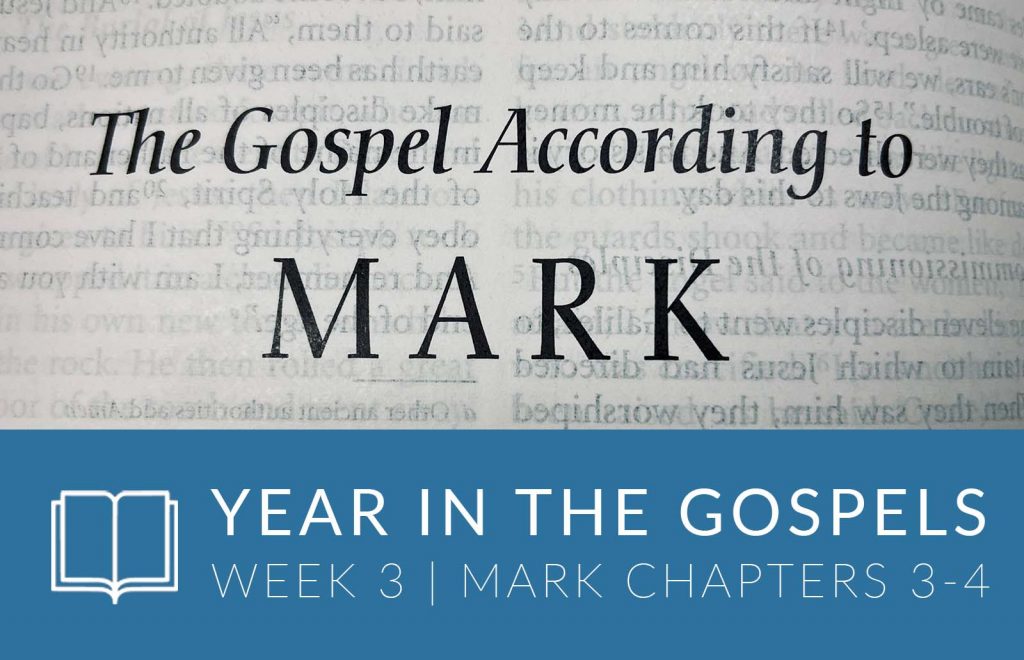This week's readings are all from Mark chapter 3. Click here to see a list of each day's readings. Each day's segments of the readings will be posted on this site during the week.
Today's Reading:
Now Jesus went up the mountain and called for those he wanted, and they came to him. He appointed twelve so that they would be with him and he could send them to preach and to have authority to cast out demons. To Simon he gave the name Peter; to James and his brother John, the sons of Zebedee, he gave the name Boanerges (that is, “sons of thunder”); and Andrew, Philip, Bartholomew, Matthew, Thomas, James the son of Alphaeus, Thaddaeus, Simon the Zealot, and Judas Iscariot, who betrayed him.
Now Jesus went home, and a crowd gathered so that they were not able to eat. When his family heard this they went out to restrain him, for they said, “He is out of his mind.” The experts in the law who came down from Jerusalem said, “He is possessed by Beelzebul,” and, “By the ruler of demons he casts out demons!” So he called them and spoke to them in parables: “How can Satan cast out Satan? If a kingdom is divided against itself, that kingdom will not be able to stand. If a house is divided against itself, that house will not be able to stand. And if Satan rises against himself and is divided, he is not able to stand and his end has come. But no one is able to enter a strong man’s house and steal his property unless he first ties up the strong man. Then he can thoroughly plunder his house." (Mark 3:13–27 NET)
The previous translation is from the NET Bible translation. Scripture quoted by permission. Quotations designated (NET) are from the NET Bible® copyright ©1996, 2019 by Biblical Studies Press, L.L.C. All rights reserved.
Some notes:
When his family heard this they went out to restrain him, for they said, “He is out of his mind.”
There are two possibilities in terms of this passage either "they said" refers to Jesus' family or it refers to the crowd. In the first case, Jesus' family thought he was 'out of his mind.' In the second case, his family had heard that the crowd was saying this about Jesus. In either case, his family was coming to forcefully get him (krateō). On the Greek word used for 'out of his mind' (existēmi): "...the Greek term is a strong one, and often does signify complete mental derangement..." Greek term is a strong one, and often does signify complete mental derangement..." UBS Translator’s Handbooks: New Testament (Mark)
He is possessed by Beelzebul
This is a very interpretive translation of rather simple Greek. There really is no instance of someone being "possessed" in the New Testament. Possession indicates ownership. Instead, the Greek is almost always either someone is "demonized" (daimonaō) or someone "has" (exei) an unclean spirit or demon(s). It is the latter case here. They say about Jesus, very simply: "He has Beelzebul."
What is the significance of Jesus renaming Simon, James and John? Why “sons of thunder”? Why not all of the disciples?
